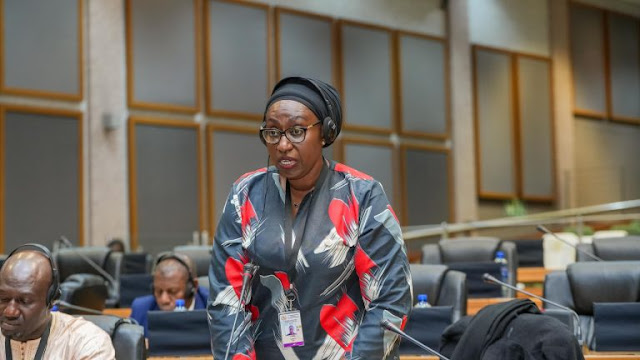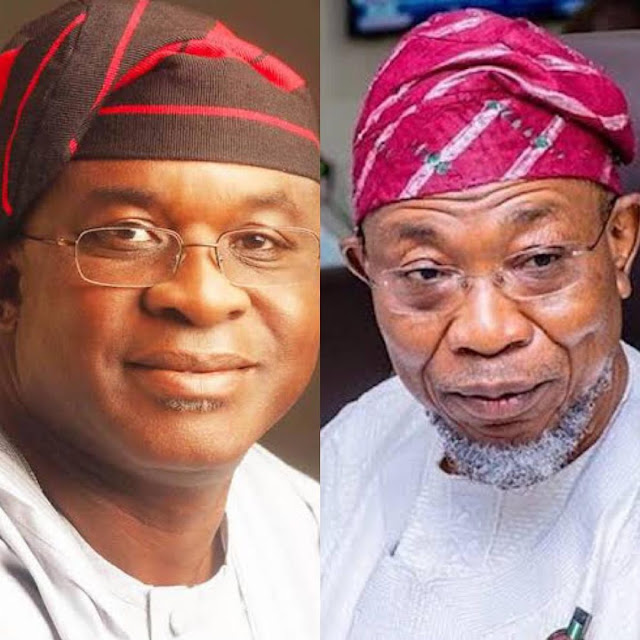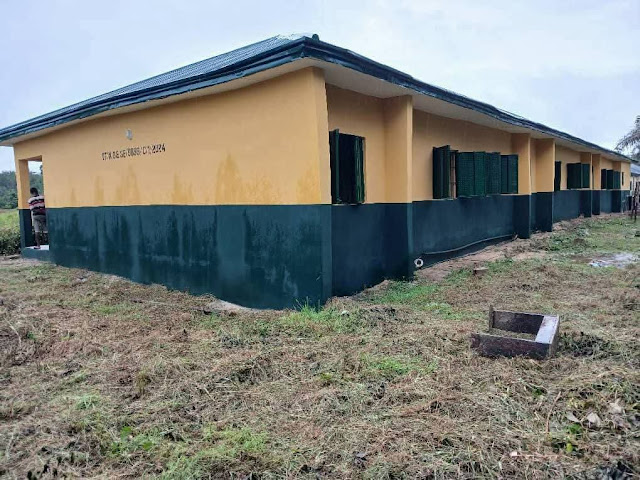The Nigerian Judicial Advocacy Initiative (NJAI), a prominent legal and human rights organization, has issued a strong condemnation of the Nigerian Senate’s decision to prevent Senator Natasha Akpoti-Uduaghan from resuming her legislative duties following her victory in the February 2023 Kogi Central Senatorial election. The NJAI described the action as “disheartening” and a “gross violation of democratic principles,” raising concerns about the integrity of Nigeria’s democratic institutions and the rule of law. This development has sparked widespread debate about the Senate’s adherence to constitutional norms, the judiciary’s role in electoral disputes, and the broader implications for Nigeria’s political landscape.
Background: The Kogi Central Senatorial Election Dispute
The controversy surrounding Senator Natasha Akpoti-Uduaghan’s resumption stems from the fiercely contested Kogi Central Senatorial election held in February 2023. The election saw Akpoti-Uduaghan, a candidate of the Peoples Democratic Party (PDP), compete against other contenders, including Abubakar Ohere of the All Progressives Congress (APC). The Independent National Electoral Commission (INEC) initially declared Ohere the winner, prompting Akpoti-Uduaghan to challenge the results at the Election Petition Tribunal, citing irregularities such as vote manipulation, over-voting, and non-compliance with the Electoral Act.
The tribunal, after a thorough review, nullified Ohere’s victory, declaring Akpoti-Uduaghan the rightful winner based on evidence that she had secured the majority of valid votes. The decision was upheld by the Court of Appeal in October 2023, which affirmed the tribunal’s ruling and ordered INEC to issue a Certificate of Return to Akpoti-Uduaghan. On November 1, 2023, INEC complied, officially recognizing her as the duly elected senator for Kogi Central.
However, despite the judicial pronouncements and INEC’s compliance, the Senate, under the leadership of Senate President Godswill Akpabio, has refused to allow Akpoti-Uduaghan to assume her role in the Red Chamber. This unprecedented move has drawn sharp criticism from various quarters, including the NJAI, which argues that the Senate’s actions undermine the judiciary’s authority and the democratic process.
NJAI’s Position: A Call for Justice and Accountability
In a strongly worded statement issued on November 3, 2023, the NJAI condemned the Senate’s refusal to recognize Akpoti-Uduaghan’s mandate as a deliberate attempt to subvert justice. The organization’s Director-General, Barrister Chukwuma Eze, described the situation as “quite disheartening” and a “dangerous precedent” that threatens the sanctity of Nigeria’s democracy. Eze argued that the Senate’s actions constitute a direct affront to the judiciary, which had clearly ruled in favor of Akpoti-Uduaghan.
“The Nigerian Senate is not above the law,” Eze stated. “The courts have spoken, and their verdict is binding. By preventing Senator Natasha Akpoti-Uduaghan from taking her rightful place in the Senate, the leadership is sending a dangerous signal that it can disregard judicial rulings at will. This is a violation of the Constitution and an attack on the democratic rights of the people of Kogi Central who elected her.”
The NJAI further called on the Senate leadership to immediately reverse its decision and allow Akpoti-Uduaghan to resume her duties. The organization also urged civil society groups, the media, and the international community to condemn the Senate’s actions and pressure the institution to respect the rule of law. Eze emphasized that the judiciary’s role in resolving electoral disputes must be upheld to ensure that Nigeria’s democracy remains robust and credible.
The Senate’s Rationale and Political Undertones
While the Senate has not issued an official statement explaining its decision to bar Akpoti-Uduaghan, sources within the National Assembly suggest that the move may be linked to internal power dynamics and political maneuvering. The Kogi Central Senatorial election was marked by intense rivalry between the PDP and the APC, with the latter enjoying significant influence in the state’s political machinery. Some analysts speculate that the Senate’s reluctance to recognize Akpoti-Uduaghan’s victory may be an attempt to maintain the APC’s dominance in the Red Chamber, where it holds a majority.
Critics argue that the Senate’s actions reflect a broader trend of political interference in judicial processes, a recurring issue in Nigeria’s democratic journey. The refusal to allow Akpoti-Uduaghan to resume her duties raises questions about the independence of the legislature and its commitment to upholding the will of the electorate. Political observers have pointed out that such actions risk eroding public confidence in democratic institutions, particularly at a time when Nigeria is grappling with challenges such as insecurity, economic instability, and widespread disillusionment with governance.
Natasha Akpoti-Uduaghan: A Profile of Resilience
Senator Natasha Akpoti-Uduaghan is no stranger to adversity. A lawyer, entrepreneur, and activist, she has emerged as a formidable figure in Nigerian politics, known for her advocacy for good governance, gender equality, and economic empowerment. Her decision to contest the Kogi Central Senatorial seat was seen as a bold move in a region long dominated by entrenched political interests. Akpoti-Uduaghan’s campaign focused on addressing the socio-economic challenges facing Kogi Central, including poverty, unemployment, and lack of infrastructure.
Her legal battle to reclaim her mandate was widely followed, with many Nigerians viewing her victory at the tribunal and Court of Appeal as a triumph of justice over political manipulation. Akpoti-Uduaghan has remained vocal in the face of the Senate’s refusal to allow her resumption, calling on her supporters to remain calm while pledging to pursue all legal avenues to claim her rightful place in the Senate.
In a recent interview, she stated, “The people of Kogi Central have spoken through their votes, and the courts have affirmed their choice. I will not be deterred by this temporary setback. My commitment to serving my constituents remains unwavering, and I trust that justice will prevail.”
Broader Implications for Nigeria’s Democracy
The controversy surrounding Akpoti-Uduaghan’s exclusion from the Senate has far-reaching implications for Nigeria’s democratic institutions. At its core, the issue raises critical questions about the separation of powers, the sanctity of judicial rulings, and the role of the legislature in upholding democratic principles. The Nigerian Constitution clearly outlines the judiciary’s authority to adjudicate electoral disputes, and the Senate’s refusal to comply with a court order undermines this framework.
Legal experts have weighed in on the matter, arguing that the Senate’s actions violate Section 1(3) of the 1999 Constitution, which states that any law or action inconsistent with the Constitution is null and void. Professor Itse Sagay, a renowned constitutional lawyer, described the Senate’s decision as “an act of lawlessness” that sets a dangerous precedent. “If the Senate can disregard a court ruling today, what stops it from doing so in other matters tomorrow? This is a direct threat to the rule of law and the stability of our democracy,” Sagay warned.
The NJAI’s condemnation also highlights the broader issue of electoral integrity in Nigeria. Despite reforms to the Electoral Act in 2022, which introduced measures such as the Bimodal Voter Accreditation System (BVAS) to enhance transparency, electoral disputes continue to plague the country’s democratic process. The manipulation of election results, delays in judicial resolutions, and non-compliance with court orders remain significant challenges that undermine public trust in the system.
Public and Political Reactions
The Senate’s decision has elicited strong reactions from various stakeholders. Civil society organizations, including the Transition Monitoring Group (TMG) and the Centre for Democracy and Development (CDD), have called for urgent action to address the situation. The TMG, in a statement, described the Senate’s actions as “a deliberate attempt to disenfranchise the people of Kogi Central” and urged the judiciary to take decisive steps to enforce its ruling.
On social media platforms like X, Nigerians have expressed outrage, with hashtags such as #JusticeForNatasha and #SenateRespectTheLaw trending in recent days. Many users have accused the Senate of prioritizing political interests over the will of the electorate. One X user, @DemocracyNowNG, posted, “The Senate’s refusal to allow Natasha Akpoti-Uduaghan to resume is a slap in the face of democracy. The courts have spoken, and the Senate must obey.”
Political parties have also weighed in, with the PDP condemning the Senate’s actions as an attempt to suppress opposition voices. The party’s National Publicity Secretary, Debo Ologunagba, called on Senate President Akpabio to “do the right thing” and allow Akpoti-Uduaghan to take her seat. The APC, however, has remained largely silent on the issue, fueling speculation about the party’s role in the controversy.
The Role of the International Community
The NJAI’s call for international intervention underscores the gravity of the situation. Nigeria, as Africa’s most populous nation and a key player in regional politics, is often seen as a barometer for democratic progress on the continent. Actions that undermine democratic principles, such as the Senate’s refusal to comply with a court order, could have ripple effects beyond Nigeria’s borders.
International organizations such as the African Union (AU) and the Economic Community of West African States (ECOWAS) have yet to issue official statements on the matter, but diplomatic sources suggest that the situation is being closely monitored. In the past, both organizations have emphasized the importance of upholding the rule of law and respecting judicial decisions in member states. The NJAI’s appeal to the international community may prompt further scrutiny of Nigeria’s democratic practices.
The Way Forward: Resolving the Impasse
To address the current impasse, several steps have been proposed by stakeholders. First, the Senate must immediately comply with the Court of Appeal’s ruling and allow Akpoti-Uduaghan to resume her duties. This would demonstrate respect for the judiciary and reaffirm the legislature’s commitment to democratic principles.
Second, the judiciary itself may need to take further action to enforce its ruling. Legal experts suggest that Akpoti-Uduaghan could file a contempt of court case against the Senate leadership, compelling them to comply with the court’s order. Such a move, while unprecedented, would send a strong message about the judiciary’s authority.
Third, civil society and the media have a crucial role to play in sustaining pressure on the Senate. By amplifying the issue and mobilizing public support, these groups can ensure that the controversy remains in the spotlight until a resolution is reached.
Finally, the Nigerian government must prioritize broader electoral reforms to prevent similar situations in the future. Strengthening the independence of INEC, ensuring timely resolution of electoral disputes, and enhancing the enforcement of judicial rulings are critical steps toward building a more resilient democratic system.
Conclusion: A Test of Democratic Resilience
The Senate’s refusal to allow Senator Natasha Akpoti-Uduaghan to resume her duties is a troubling development that strikes at the heart of Nigeria’s democracy. The NJAI’s condemnation reflects the concerns of many Nigerians who see the incident as a symptom of deeper systemic challenges. As the nation grapples with this controversy, the actions of the Senate, the judiciary, and other stakeholders will shape public perceptions of democratic governance.
For Senator Akpoti-Uduaghan, the fight is not just about reclaiming her seat but about upholding the will of the people of Kogi Central and defending the principles of justice and accountability. As the situation unfolds, Nigerians and the international community will be watching closely to see whether the Senate will rectify its stance or further entrench a precedent that undermines the rule of law. The resolution of this matter will serve as a litmus test for Nigeria’s commitment to democratic ideals and the sanctity of its institutions.







